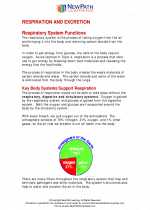Sustainability
Sustainability is the practice of using resources in a way that meets the needs of the current generation without compromising the ability of future generations to meet their own needs. It involves considering the environmental, social, and economic impact of our actions and finding ways to minimize negative effects.
Key Concepts
- Environmental Impact: This refers to the effect of human activities on the natural world, including air and water pollution, deforestation, habitat destruction, and depletion of natural resources.
- Social Impact: Sustainability also involves considering the well-being of communities and addressing issues such as social equity, human rights, and access to basic needs like clean water, food, and healthcare.
- Economic Impact: Sustainable practices aim to promote economic prosperity while minimizing negative impacts on the environment and society. This can involve creating business models that are financially viable without causing harm to the planet or its inhabitants.
- Renewable Resources: These are resources that can be replenished naturally over time, such as sunlight, wind, and water. Using renewable resources helps reduce environmental impact and promotes long-term sustainability.
- Reduce, Reuse, Recycle: This is a mantra for sustainable living that encourages minimizing waste by reducing consumption, reusing materials whenever possible, and recycling items to give them a new life.
- Ecological Footprint: This concept measures the impact of an individual or community on the environment, including their consumption of resources and production of waste. Understanding and reducing one's ecological footprint is a key aspect of sustainability.
Study Guide
When studying sustainability, it's important to explore the interconnectedness of environmental, social, and economic factors. Consider the following questions as you delve into this topic:
- How do human activities impact the environment, and what are the consequences of these impacts?
- What are some examples of sustainable practices in everyday life, and how do they contribute to environmental conservation and social well-being?
- What role does government policy play in promoting sustainability, and what are some international efforts to address global sustainability challenges?
- How can businesses and industries adopt sustainable practices while remaining profitable, and what are the potential benefits of doing so?
- What are the ethical considerations involved in sustainability, and how can individuals and communities contribute to a more sustainable world?
By addressing these questions and exploring real-world examples, you can gain a deeper understanding of sustainability and its implications for the future of our planet.
.◂Science Worksheets and Study Guides Eighth Grade. Respiration and excretion
Study Guide Respiration and excretion
Respiration and excretion  Worksheet/Answer key
Worksheet/Answer key Respiration and excretion
Respiration and excretion  Worksheet/Answer key
Worksheet/Answer key Respiration and excretion
Respiration and excretion  Worksheet/Answer key
Worksheet/Answer key Respiration and excretion
Respiration and excretion  Vocabulary/Answer key
Vocabulary/Answer key Respiration and excretion
Respiration and excretion  Vocabulary/Answer key
Vocabulary/Answer key Respiration and excretion
Respiration and excretion  Vocabulary/Answer key
Vocabulary/Answer key Respiration and excretion
Respiration and excretion  Vocabulary/Answer key
Vocabulary/Answer key Respiration and excretion
Respiration and excretion 

 Worksheet/Answer key
Worksheet/Answer key
 Worksheet/Answer key
Worksheet/Answer key
 Worksheet/Answer key
Worksheet/Answer key
 Vocabulary/Answer key
Vocabulary/Answer key
 Vocabulary/Answer key
Vocabulary/Answer key
 Vocabulary/Answer key
Vocabulary/Answer key
 Vocabulary/Answer key
Vocabulary/Answer key
